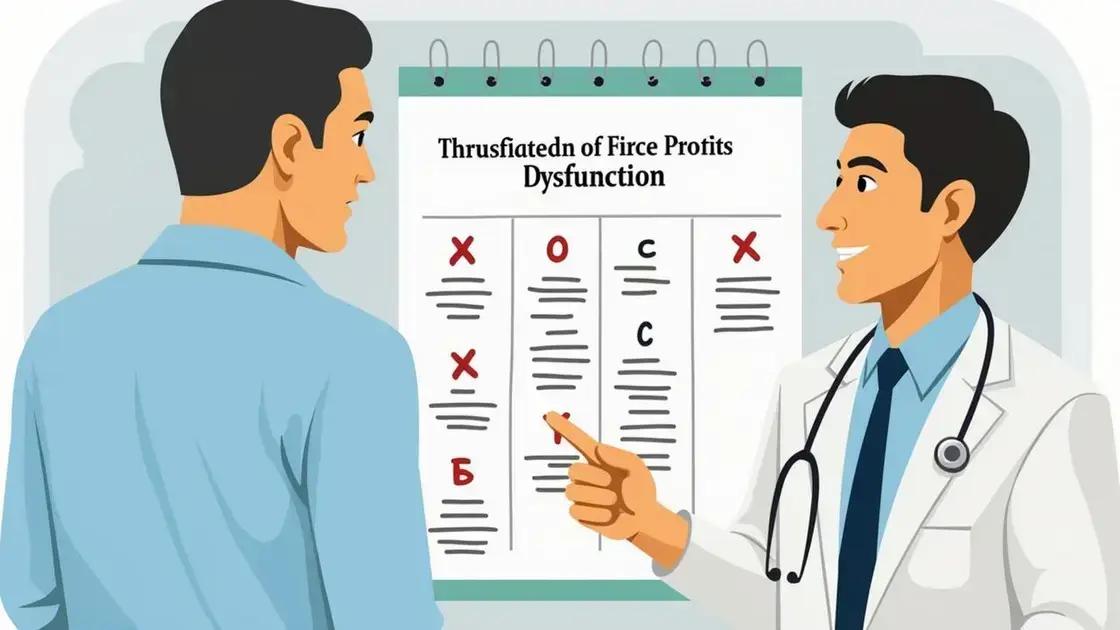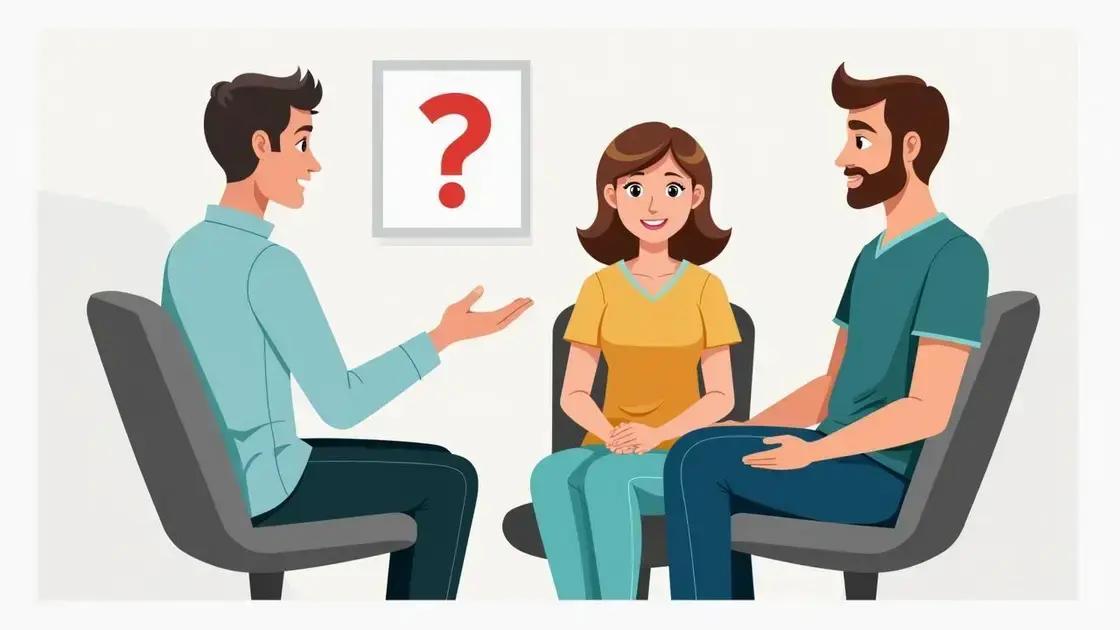Erectile dysfunction (ED) is the inability to achieve or maintain an erection and can stem from various causes, including physical health issues, psychological factors, and lifestyle choices. Recognizing when to seek professional help is crucial, especially if ED is persistent or affecting relationships. Making lifestyle changes, such as exercising, eating a healthy diet, and managing stress, can significantly improve erectile function.
Erectile dysfunction (ED) is a common issue affecting many men worldwide, often leading to feelings of embarrassment and frustration. Understanding what causes erectile dysfunction is essential for improving men’s health and intimacy. In this article, we will delve into various factors contributing to ED, including physical health, psychological issues, and lifestyle choices. By recognizing these elements, men can take proactive steps toward addressing this condition.
Understanding Erectile Dysfunction

Erectile dysfunction (ED) is defined as the inability to achieve or maintain an erection suitable for sexual intercourse. This condition can affect men of all ages but is more common in older adults. Understanding erectile dysfunction is crucial for addressing the underlying issues and improving overall sexual health.
Physical Factors
There are numerous physical factors that contribute to erectile dysfunction. These include cardiovascular diseases, diabetes, obesity, and hormonal imbalances. Cardiovascular health affects blood flow, which is essential for achieving an erection. Conditions that impair blood flow can lead to ED.
Medical Conditions
Many medical conditions can cause erectile dysfunction. Diabetes is one of the leading causes, as it can damage nerves and blood vessels. Other conditions such as high blood pressure and high cholesterol also increase the risk of ED. It is important for men to manage these health issues effectively to improve erectile function.
Age and ED
As men age, the likelihood of experiencing erectile dysfunction tends to increase. Hormonal changes, medical problems, and a decrease in physical abilities all contribute to this trend. However, aging does not automatically lead to ED, and many older men maintain healthy sexual function.
Communication and Relationships
Understanding erectile dysfunction also involves recognizing its impact on relationships. Open communication with partners about sexual health can help alleviate anxiety and improve intimacy. Partners should support each other in seeking help and discussing their concerns.
Importance of Seeking Help
Many men feel embarrassed to talk about erectile dysfunction, but seeking help is key to managing this condition. Sexual health is an important aspect of overall well-being. Healthcare professionals can provide valuable strategies and treatments to address the causes of ED, enabling men to regain confidence and improve their sexual health.
Common Causes of Erectile Dysfunction

There are several common causes of erectile dysfunction (ED) that can affect men at various stages of life. Understanding these causes is important for identifying the right treatment options.
Cardiovascular Issues
Heart health plays a significant role in erectile function. Conditions such as high blood pressure and atherosclerosis can restrict blood flow to the penis. This reduced blood flow makes it difficult to achieve or maintain an erection.
Hormonal Imbalances
Hormones regulate many bodily functions, including sexual performance. Low testosterone levels can lead to decreased libido and difficulties in achieving an erection. Other hormonal issues, such as thyroid problems, can also contribute to ED.
Nerve Damage
Nerve-related issues can significantly impact erectile function. Conditions like diabetes can cause peripheral nerve damage, reducing sensitivity and inhibiting erections. Other causes of nerve damage, such as injuries or surgeries, can also lead to ED.
Medication Side Effects
Many medications can cause erectile dysfunction as a side effect. Drugs used to treat depression, anxiety, high blood pressure, and certain prostate conditions are known culprits. It is essential to discuss any concerns about medications with a healthcare professional.
Substance Abuse
The use of alcohol, tobacco, and recreational drugs can have adverse effects on sexual health. For example, alcohol may inhibit the nervous system, while smoking affects blood circulation. Addressing these habits is crucial for improving erectile function.
Psychological Factors Influencing ED

Psychological factors can significantly influence erectile dysfunction (ED) and are often overlooked. Understanding these influences is essential for effective treatment.
Stress and Anxiety
Stress about work, finances, or personal issues can drain energy and impact sexual performance. Anxiety regarding sexual performance itself can create a cycle where fear leads to ED, making the anxiety worse over time.
Depression
Depression is a common psychological condition that can affect libido and erectile function. Feelings of sadness or hopelessness can lead to a decrease in sexual desire and make it difficult to maintain an erection. Treatment for depression may help improve sexual health.
Relationship Issues
Problems within a relationship can create emotional barriers that contribute to ED. Lack of communication, unresolved conflicts, or feelings of resentment can hinder intimacy. A positive emotional connection with a partner is crucial for healthy sexual function.
Low Self-Esteem
Men who struggle with low self-esteem may experience a lack of confidence in their sexual abilities. This lack of confidence can lead to performance anxiety, further complicating the situation. Building self-esteem and confidence can be beneficial in overcoming ED.
Psychological Therapy
Engaging in psychological therapy can be an effective way to address the psychological factors influencing ED. Therapists can help individuals explore their feelings, reduce anxiety, and improve communication with partners, which can enhance sexual performance.
Lifestyle Changes to Improve ED

Making specific lifestyle changes can significantly improve erectile dysfunction (ED). Here are some effective strategies to enhance sexual health.
Regular Exercise
Engaging in regular physical activity is one of the best ways to improve ED. Exercise helps boost blood circulation, reduces stress, and enhances overall physical health. Aim for at least 30 minutes of moderate activity most days of the week. Activities like walking, swimming, or cycling can be beneficial.
Healthy Diet
A balanced diet rich in fruits, vegetables, whole grains, and lean proteins can promote better erectile function. Foods high in antioxidants, such as berries and nuts, can improve blood flow. Reducing saturated fat and sugar intake is also essential for maintaining a healthy weight and good cardiovascular health.
Avoiding Tobacco and Excess Alcohol
Using tobacco can damage blood vessels and reduce blood flow to the penis. Quitting smoking can improve ED symptoms. Additionally, limiting alcohol consumption is crucial. While moderate drinking is acceptable, heavy drinking can lead to erectile dysfunction.
Managing Stress
Stress management is key to improving erectile dysfunction. Practices such as meditation, yoga, and deep breathing can help reduce anxiety. Allocating time for relaxation and hobbies can enhance overall emotional well-being.
Maintaining a Healthy Weight
Being overweight can contribute to many health issues, including erectile dysfunction. Losing weight through a combination of healthy eating and regular exercise can improve erectile function. Aim to achieve and maintain a healthy body mass index (BMI) for better results.
When to Seek Professional Help for ED

Recognizing when to seek professional help for erectile dysfunction (ED) is crucial for addressing health concerns. Here are some signs that indicate it may be time to consult a healthcare provider.
Persistent Issues
If you experience erectile dysfunction regularly over several weeks or months, it is important to consult a doctor. Occasional difficulties may be normal, but persistent ED can be a sign of underlying health problems.
Impact on Relationships
When ED begins to affect your relationship or sexual intimacy with a partner, it’s a good idea to seek help. Open communication with a healthcare provider can assist in addressing these concerns and improving emotional connections.
Physical Symptoms
Pay attention to any additional symptoms, such as painful erections or changes in sexual desire. These may indicate more serious health issues that need medical evaluation.
Underlying Health Conditions
If you have underlying health problems like diabetes, heart disease, or obesity, it is wise to speak to a healthcare professional. These conditions can contribute to erectile dysfunction, and managing them could lead to improved sexual health.
Emotional Concerns
If you notice increased anxiety, depression, or stress related to sexual performance, seeking support can be beneficial. Mental health plays a key role in sexual function. Professional guidance can help address these emotional factors.
Understanding Erectile Dysfunction and Taking Action
Erectile dysfunction (ED) affects many men and can stem from a variety of causes, including physical health, psychological factors, and lifestyle choices. By recognizing the underlying issues and understanding common causes, individuals can take proactive steps to improve their sexual health.
Making lifestyle changes such as exercising regularly, eating a balanced diet, and managing stress can significantly enhance erectile function. When necessary, seeking professional help is vital for addressing persistent ED and uncovering any related health conditions.
Ultimately, understanding what causes erectile dysfunction is the first step in taking control of your sexual health and fostering intimate relationships.
FAQ – Frequently Asked Questions About Erectile Dysfunction
What is erectile dysfunction (ED)?
Erectile dysfunction (ED) is the inability to achieve or maintain an erection suitable for sexual intercourse. It can affect men of various ages.
What are the common causes of ED?
Common causes of ED include physical health issues like diabetes and heart disease, psychological factors such as stress and anxiety, as well as lifestyle choices like smoking and excessive alcohol consumption.
How can lifestyle changes improve ED?
Lifestyle changes such as regular exercise, a healthy diet, quitting smoking, and managing stress can significantly enhance erectile function.
When should I seek professional help for ED?
You should seek professional help if you experience persistent issues with ED, notice any additional physical symptoms, or if ED affects your relationships or overall mental well-being.
Can psychological factors impact erectile dysfunction?
Yes, psychological factors such as anxiety, depression, and relationship issues can significantly influence erectile dysfunction.
Are there treatments available for ED?
Yes, there are various treatments available, including medications, counseling, lifestyle changes, and medical devices. It is essential to consult with a healthcare professional for the best options.












